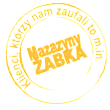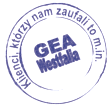Welcome to the IRATA course
Planning to work at height at home or abroad? Get your IRATA certification - one of the most recognised documents in the rope access industry. Our training (Level 1, 2 or 3) will prepare you to work in sectors such as energy, heavy industry, offshore, construction or technical inspection.
Benefits of completing the course
After passing the training, you will receive an IRATA certificate (valid for 36 months), a plastic card, a logbook. This is your pass to work all over the world!
IRATA course
Training continues 4 daysand the day of the exam is Day 5 - Practical and theoretical assessment by an independent IRATA assessor.
The course includes: theory, practice (including: climbing, abseiling, evacuation, health and safety) and then an exam.
IRATA certification
- IRATA certification is valid for three years, after which recertification is required to confirm that the technician's knowledge and skills are up to date.
- The exam is divided into a theoretical and a practical part, ensuring that the holder of the qualification not only knows the principles, but can apply them effectively in real working conditions.
- The certification process is overseen by IRATA accredited assessors, ensuring uniform and high standards of assessment worldwide.
Job opportunities after the IRATA course
Holders of Level 1, 2 or 3 certificates can start working as rope technicians as early as Level 1. Higher levels open the door to supervisory, inspection and instructor positions - both in Poland and abroad. IRATA qualifications are essential in many industries, including:
- Energy (wind, solar, conventional power plants)
- Petrochemical and refining industry
- High-rise buildings and urban infrastructure
- Shipbuilding and offshore industry (oil platforms, ships)
- Telecommunications (installation and maintenance of antennas, masts)
- Heavy industry (production plants, storage halls)
- Maintenance and inspection work on steel structures
- Chemical and pharmaceutical industry
- Rope work in forestry and ecology (monitoring, rescue)
These industries require not only precise technical skills, but also high safety standards - which are guaranteed by IRATA certification.
Importance of the IRATA organisation
IRATA is a global organisation based in the UK and has been active since the 1980s. It sets standards for safety and quality in rope access techniques. IRATA certifications are recognised by around 400 member companies worldwide and are considered the most prestigious in the industry.
Security implications of IRATA
IRATA statistics confirm a very low accident rate (e.g. 28 incidents out of almost 24 million working hours) - the ICOP/TACS system is based on hazard and accident analysis, which translates into specific training and operational procedures.
IRATA Levels - Level 1, 2, 3
🧑🔧 Level 1 - Rope Access Technician
Scope: basic climbing techniques, belaying, self-rescue; working under Level 3 supervision only.
Requirements: ≥ 18 years old, good physical fitness, no health contraindications. No previous experience.
🧑🔧 Level 2 - Rope Access Specialist
Scope: installation of rope systems, advanced rescue techniques, greater autonomy within the team.
Requirements: Level 1 certificate, min. 12 months experience and min. 1000 working hours documented in a logbook.
🧑🔧 Level 3 - Rope Access Supervisor
Scope: supervision of entire projects, planning, risk assessment, team rescue.
Requirements: Level 2 certificate, min. 12 months experience and 1000 hours post Level 2, valid first aid course.
Key information in a nutshell:
- The course lasts 4 days + 1 exam day
- Certificate valid for 3 years, recertification required before expiry
- Level 1 - entry for novices (≥ 18 years of age)
- Level 2 - min. 1000 h + 12 months as Level 1
- Level 3 - min. 1000 h + 12 months as Level 2, supervision and team rescue
🗂️ Comparison of IRATA levels
| Level | Terms of reference | Requirements | Role at work |
| Level 1 | Basic rope manoeuvres and self-rescue | ≥ 18 years old, fit, no experience | Technician under supervision L3 |
| Level 2 | Advanced system installation, rescue | L1 certificate; ≥ 12 months, 1000 hrs | Technician with greater responsibility |
| Level 3 | Project supervision, planning, advanced rescue | L2 certificate; ≥ 12 months, 1000 h; first aid course | Supervisor / team leader |
FAQ - questions and answers
Do I need to have experience to enrol on an IRATA course?
No. The IRATA Level 1 course is also suitable for people with no experience.
How long does an IRATA certificate last?
The IRATA certificate is valid for 3 years. A recertification must be completed before it expires.
Can I work abroad straight away after the course?
Yes, IRATA certification is recognised worldwide, especially in the offshore and energy sectors.
Does the training take place indoors or outdoors?
The training takes place in a certified centre with rope training facilities - usually in a hall with the possibility to simulate different working conditions.
What do I need to bring to the course?
All you need is comfortable clothing and sports shoes. Equipment is provided by the training organiser.
Can I retake the exam if I do not pass it?
Yes. If you do not pass the examination, you may re-take it at a designated time, by arrangement with the assessor.
































